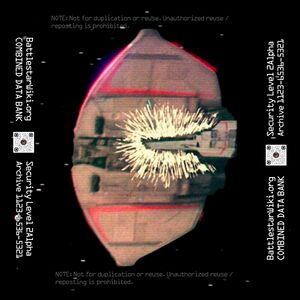Interception of the A-B Raider
More actions
| Interception of the A-B Raider | |||||||||||||||||||||
|---|---|---|---|---|---|---|---|---|---|---|---|---|---|---|---|---|---|---|---|---|---|
 | |||||||||||||||||||||
| Summary | |||||||||||||||||||||
| Conflict: | The Discovery and Defense of Earth | ||||||||||||||||||||
| Date: | October 30, 1980 CE[1] | ||||||||||||||||||||
| Related Episode(s): | |||||||||||||||||||||
| Place: | Near Sol | ||||||||||||||||||||
| Result: | Colonial victory | ||||||||||||||||||||
| |||||||||||||||||||||
| Battle Chronology | |||||||||||||||||||||
| |||||||||||||||||||||
While patrolling the flight corridors leading to Earth, Captain Kanon and Lieutenant Briton of Recon Probe Delta encounter an advanced Cylon craft. After engaging the ship in battle, and noting that the Cylons look humanoid, they determine that they must disable it before it reaches Earth. The pilots determine that the Viper cannot destroy the craft with firepower alone, since the Cyon ship is too fast and too well armed.
Knowing that the ship's present course would bring it to Earth, Kanon has no choice but to ram the ship, which causes the ship to crash land on Earth. The crash results in the destruction of Andromidus, an advanced Cylon form that looks humanoid, and three Centurions. (The Night the Cylons Landed, Part I).
Analysis
The Cylons have a new craft was previously seen in "The Super Scouts, Part I" leading an attack on the Delphi. However, the ship was apparently still unknown to the Colonials before Recon Probe Delta's encounter.
References
- ↑ Andromus and Centuri attend a Halloween party in New York City, which falls on October 31 of every Earth year. The attack occurs around the night before, as Dillon and Troy first hear of the attack at night before at the Griffith Park Observatory, even taking in the 3 hour time difference between Pacific and Eastern Times.
